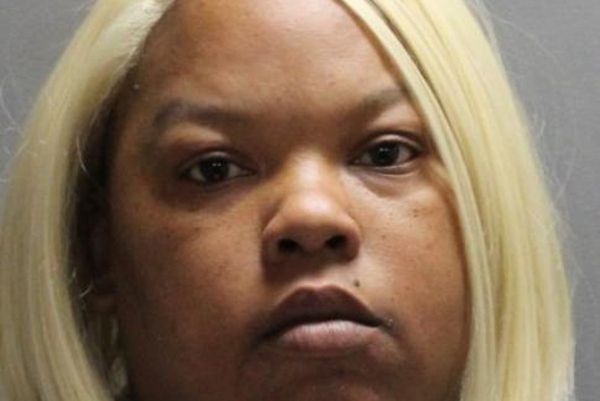Five years after the release of a national report into sexual misconduct at Australian universities, the head of a Tasmanian residential college has taken aim at a decades-old tradition.
Jane Franklin Hall, in Hobart, has long had a tradition known as "tables" — exclusive groups that have eaten together at formal dinners, voted as a bloc during student elections, and raised funds.
Principal Joanna Rosewell said the groups were gender segregated and they often bonded over excessive drinking.
The primary groups were Low Table, open only to men, and PMT, or Psychologically Mature Table, which was for women.
From this year, such groups are explicitly banned and participation can result in expulsion.
"It became, very much on the surface level, a fraternity," Ms Rosewell said of Low Table in particular.
"It was a small group of people — and individually really, really amazing young men, many of whom I've made friends with and have great respect for — but as a collective, there is something there about the male pack-type behaviour that can be quite confronting to those who aren't in the pack.
"It caused divisions within our actually very harmonious and relatively very respectful community, and it was the last little bit that we wanted to nail in this really great place that we live in."
Jane Franklin Hall student representative Josephine Palmer said while some people had opposed the changes, the decision was largely welcomed.
The groups had already been shrinking in influence in recent years, she said.
"I feel like there's been a lot of changes in Australia and around the world in the last 20 years, and we are living in an environment where exclusive, gender-segregated groups are not socially acceptable anymore, in a very blunt way."
Ms Rosewell said she had been working towards reducing the influence of tables for about five years.
She said her decision was partly influenced by the release of the Australian Human Rights Commission report Change the Course in 2017, which found one in five students had been sexually harassed and 1.6 per cent sexually assaulted in a university setting.
"I don't think as far as sexual misconduct goes, there was a great deal around the groups, the fraternities if you like," she said.
"I think their behaviour was really more around excessive drinking, around that sort of inclusivity that excluded others.
"It was of great concern to me because, first of all, they chose their members, so it was exclusive. And what that did was it created on a very clear level disappointment for those who weren't members of it."
Jane Franklin Hall has also commissioned a review of High Table, an Oxbridge tradition that places hall staff and special guests on a table physically above other diners during formal dinners.
"Traditions are great, let's keep those that are really good, but let's remove those that are no longer part of 2022," Ms Rosewell said.
Universities 'united' on cultural improvements
Universities and residential colleges across Australia were forced to reckon with cultural problems in the wake of the Change the Course report.
In addition to its findings on the prevalence of sexual harassment and assault, its survey of more than 30,000 students across the nation's 39 universities found the vast majority of victim-survivors did not make formal complaints to their institution.
Universities Australia will release the results of a follow-up survey in the first half of this year.
Chief executive Catriona Jackson said the sector was dedicated to tackling sexual misconduct, as evidenced by changes to "huge rafts of policy and process".
"You can see such resolve among universities working importantly very closely with students," Ms Jackson said.
"I can't see that universities are not absolutely united from the very top right through all the layers — students and staff — to tackling this problem and taking it absolutely seriously, right on the front foot."
Students to grade universities on sexual assault, harassment issues
But National Union of Students (NUS) president Georgie Beatty said there was still a long way to go, and the union had not been properly involved or consulted on the second survey.
"The focus needs to be on actually creating a national standard," Ms Beatty said.
"There needs to be a focus on creating proper accountability measures, [and ensuring] that those accountability measures are not being run by TEQSA (the Tertiary Education Quality and Standards Agency), which is our monitoring body, but are actually being monitored by students."
The student union is developing a scorecard for universities based on a Canadian initiative called Our Turn.
"Normally the teachers are the ones marking us and the universities are the ones marking us, and then we get to have a go at marking universities," Ms Beatty said.
NUS women's officer Jacqueline Price said she believed there had been "little to no change" in the culture at universities and residential colleges.
"We've seen some colleges try to cover it up, sweep it under the rug and turn a blind eye to it, and it really hasn't changed," she said.
"I've personally heard many stories of rape and sexual assault on campuses and at residential colleges at parties. So, as much as it's not being reported, it's definitely still happening and we know it's happening."
Ms Jackson said Universities Australia had released a best practice policy framework to guide institutions.
"I don't think imposing a template across every single university — because they are quite different and serve different communities — is the right way to go, but certainly a consistent and constant effort, which is what our universities are displaying and will continue to display, to make sure our policies and procedures are best practice is a very good idea," she said.
"I hope we see a change [in the second survey], but the difference between 2017 and now is not an enormous amount of time. We know this is a long haul."







